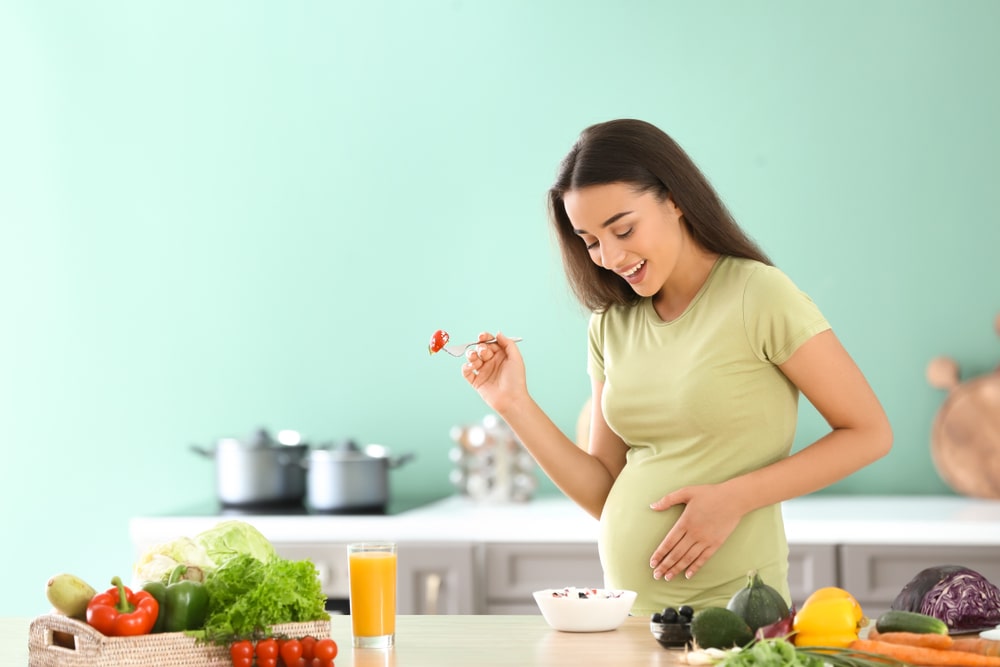Introduction
In vitro fertilization (IVF) is a complex and emotionally charged journey for couples facing fertility challenges. While medical advancements have greatly improved the success rates of IVF procedures, there are several lifestyle factors, including diet, that can influence the outcome. In this comprehensive guide, we will explore the best IVF diet for before and after transfer, focusing on nutritional strategies to support fertility, optimize embryo implantation, and promote a healthy pregnancy.
Before IVF: Preparing Your Body for Success

Balanced Nutrition:
Prior to starting IVF, it is crucial to maintain a balanced and nutritious diet. A diet rich in fruits, vegetables, lean proteins, whole grains, and healthy fats provides essential vitamins and minerals necessary for optimal fertility. Pay special attention to the following nutrients:
- Folate: Folate, found in foods like leafy greens, citrus fruits, and legumes, plays a critical role in DNA synthesis and may reduce the risk of certain birth defects.
- Iron: Adequate iron intake supports healthy blood production, which is essential for overall health and fertility.
- Omega-3 Fatty Acids: Sources like fatty fish, flaxseeds, and walnuts can help reduce inflammation and support reproductive health.
- Antioxidants: Antioxidant-rich foods like berries, nuts, and colorful vegetables protect eggs and sperm from oxidative damage.
Hydration:
Staying adequately hydrated is essential for maintaining healthy cervical mucus and promoting sperm motility. Aim to drink plenty of water throughout the day.
Limit Caffeine and Alcohol:
While moderate caffeine consumption is generally considered safe, excessive caffeine intake may negatively impact fertility. Similarly, excessive alcohol consumption can harm reproductive health. It’s advisable to limit or eliminate these substances during IVF preparation.
Maintain a Healthy Weight:
Obesity and being underweight can both affect fertility. Achieving and maintaining a healthy weight through diet and exercise can improve the chances of IVF success.
Folic Acid Supplements:
Taking a folic acid supplement (400 to 800 micrograms daily) before conception and during early pregnancy can reduce the risk of neural tube defects in the developing fetus.
Consult with a Dietitian:
Consider consulting a registered dietitian with expertise in fertility nutrition to create a personalized dietary plan tailored to your specific needs and goals.
During IVF: Supporting Embryo Transfer

Continue Nutrient-Rich Diet:
Throughout the IVF process, maintain a nutrient-rich diet to support the growth and development of healthy embryos. Focus on foods high in vitamins and minerals, such as calcium, magnesium, and vitamins D and E.
Protein Intake:
Adequate protein intake is crucial for embryo development and growth. Incorporate lean protein sources like poultry, fish, beans, and tofu into your meals.
Complex Carbohydrates:
Choose complex carbohydrates like whole grains, legumes, and starchy vegetables, which provide sustained energy and support overall health.
Iron-Rich Foods:
Continue to consume iron-rich foods to prevent anemia, which can affect fertility and pregnancy.
Stay Hydrated:
Proper hydration is essential during IVF. Dehydration can lead to thickened cervical mucus, making it more challenging for sperm to reach the egg.
Reduce Stress:
High-stress levels can negatively impact fertility. Consider relaxation techniques such as yoga, meditation, or deep breathing exercises to manage stress during IVF.
After IVF Transfer: Nurturing Early Pregnancy

Support Hormonal Changes:
Pregnancy brings significant hormonal changes. Continue to consume a balanced diet to provide the necessary nutrients for a healthy pregnancy.
Folate and Prenatal Vitamins:
Continue taking a prenatal vitamin containing folic acid to support the developing embryo’s neural tube development.
Calcium and Vitamin D:
Adequate calcium and vitamin D intake are crucial for fetal bone development. Incorporate dairy products, fortified foods, and leafy greens into your diet.
Omega-3 Fatty Acids:
Omega-3s promote the development of the baby’s brain and eyes. Include sources like fatty fish, chia seeds, and flaxseeds in your diet.
Fiber and Digestive Health:
Constipation is a common issue during pregnancy. Ensure a diet rich in fiber from fruits, vegetables, and whole grains to support digestive health.
Monitor Blood Sugar:
Pregnancy can increase the risk of gestational diabetes. Maintain stable blood sugar levels by eating balanced meals and snacks throughout the day.
Hydration:
Continue to prioritize hydration to support amniotic fluid production and overall well-being.
Limit Processed Foods:
Minimize processed foods, sugary snacks, and excessive sodium intake to maintain healthy blood pressure and prevent excessive weight gain.
Emotional Support:
In addition to the physical aspects of diet, it’s essential to acknowledge the emotional impact of IVF. Navigating fertility treatments can be emotionally challenging, and stress can affect both physical and reproductive health. Consider seeking emotional support through counseling, support groups, or mindfulness practices. Emotional well-being is an integral part of the fertility journey.
Individualized Approach:
Every person’s fertility journey is unique, and what works best for one individual may not be the same for another. An individualized approach to diet and lifestyle factors, tailored to your specific needs and circumstances, is key to achieving the best results. Consulting with a healthcare team, including a fertility specialist and dietitian, can help you create a personalized plan.
Stay Informed:
Stay informed about the latest research and advancements in fertility nutrition. The field of fertility science is continually evolving, and new insights into the role of diet and lifestyle are emerging. Being aware of the latest findings can empower you to make informed decisions about your diet and fertility.
Positive Mindset:
Maintaining a positive mindset can be a powerful asset during the IVF process. While diet and lifestyle play crucial roles, the mind-body connection should not be underestimated. Engage in activities that bring you joy, practice relaxation techniques, and nurture a positive outlook on your journey.
Patience and Resilience:
IVF can be a journey marked by its share of ups and downs. Patience and resilience are essential qualities to cultivate. Understand that success may not happen overnight, and setbacks are a natural part of the process. By maintaining a resilient spirit and a patient heart, you can navigate the challenges with greater strength.
Conclusion
The journey of IVF is a deeply personal and emotional one, and optimizing your diet can be a proactive step toward increasing the chances of success. A well-balanced and nutrient-rich diet before, during, and after IVF can support fertility, embryo development, and a healthy pregnancy.
It’s important to remember that the best IVF diet is not a one-size-fits-all approach. Individual needs and circumstances can vary, so consulting with a healthcare provider, fertility specialist, or registered dietitian who specializes in fertility nutrition is highly recommended.
